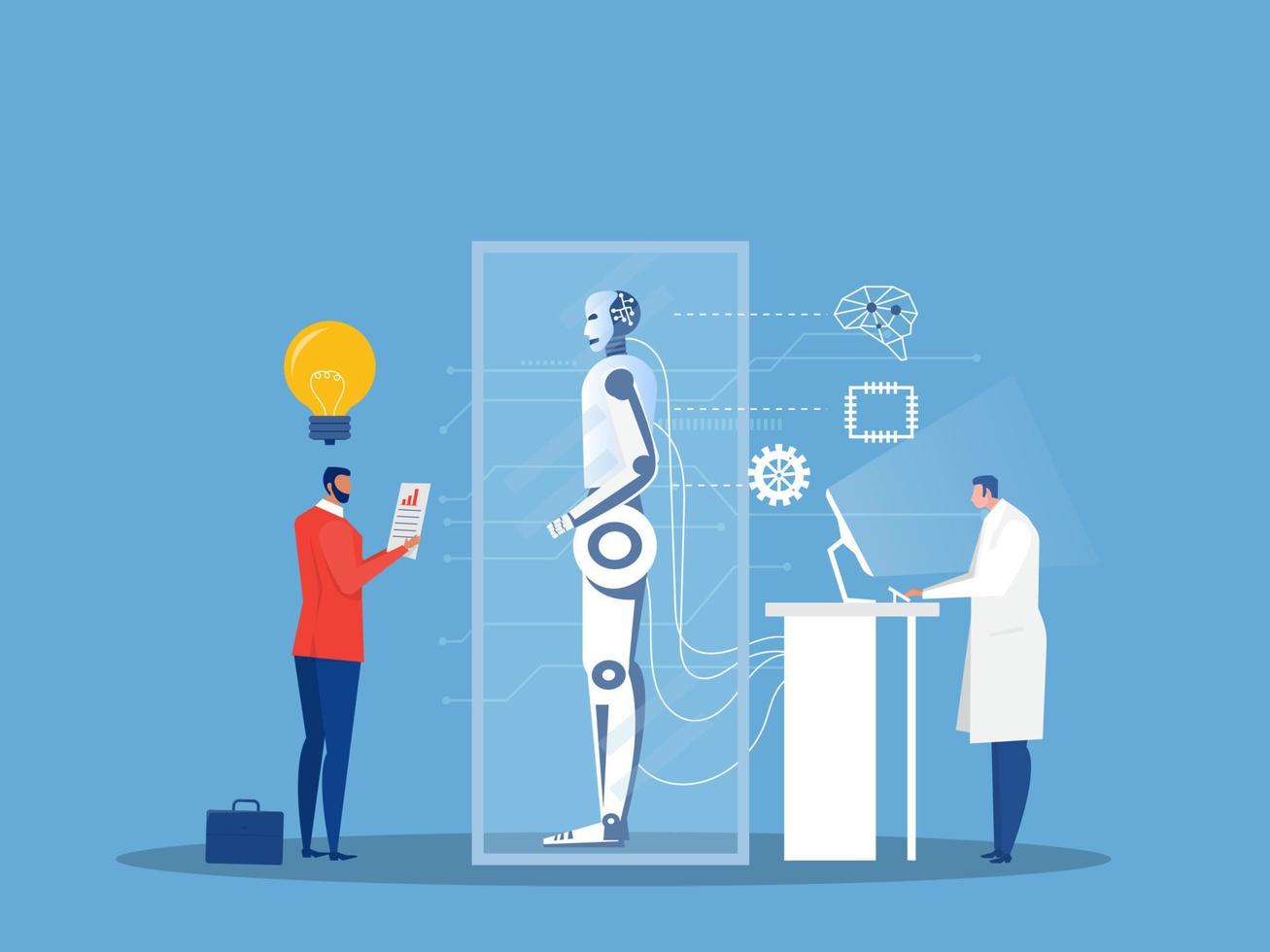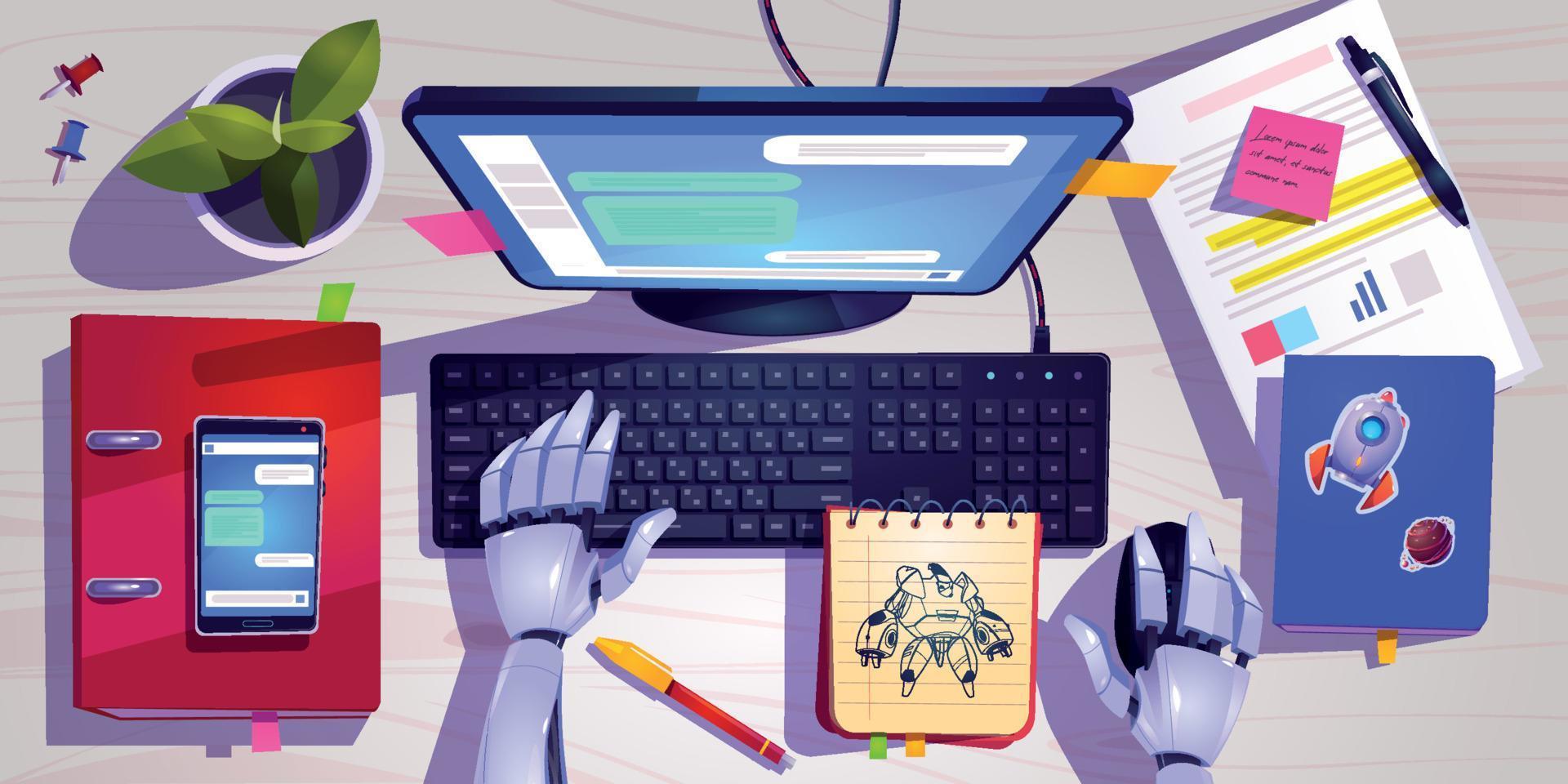Most individuals need to be more thoroughly knowledgeable about the idea of artificial intelligence (AI). For example, when 1,500 high-ranking corporate executives in the United States in 2017 were posed with inquiries regarding AI, just 17 percent answered they knew. Some were still determining what it was and how it would influence their businesses, and they comprehended great potential for changing business operations. Still, they needed a clearer understanding of how AI could be implemented in their organizations.
The utilization of AI is growing rapidly and considerably impacting the economy. It is aiding in creating new opportunities, products, and services while contributing to job growth across multiple sectors. Consequently, AI has become an integral part of modern technology and commercial success.
Artificial intelligence (AI) is becoming increasingly prevalent in technology and commerce. It is routinely utilized in multiple industries, and its effects can be seen in almost every field of innovation. This progress has been made possible by the sheer amount of data available combined with increased computing power.
Statistics show that small businesses are responsible for over half of jobs created in the United States, accounting for more than 30 percent of GDP.

The fast-paced development of AI is creating a substantial effect on the economy by initiating fresh prospects, goods, and services as well as augmenting employment across several sectors. Therefore, it is no surprise that AI has become indispensable to modern technology and fiscal success.
Benefits of AI in Business

Artificial Intelligence (AI) instantly pops into my mind when imagining the future of business. This cutting-edge technology transforms our work, streamlines processes, and opens up new company opportunities.
Businesses always search for ways to increase efficiency and boost their profits. AI offers solutions to these challenges, and its advantages are numerous. From automating routine tasks to reducing costs, improving customer experience, and providing valuable insights, AI is the solution businesses need.
AI offers a wide range of technologies that change the face of business. Machine Learning, Natural Language Processing, Computer Vision, and Robotics are just a few examples. Each technology has unique benefits and endless potential applications.
For example, the healthcare industry leverages AI to analyze massive amounts of patient data to enhance diagnoses and treatments. The retail sector uses AI to personalize the shopping experience by making recommendations based on customer behavior and past purchases. And the manufacturing industry leverages AI to optimize production lines, reducing waste and increasing efficiency.
Integrating AI into a business poses challenges, such as ethical concerns, a shortage of skilled personnel, data privacy and security, and system integration despite the numerous benefits. However, these challenges should continue to prevent businesses from adopting AI. The industry’s future lies in this technology, and companies that embrace it will reap the rewards. On the other hand, businesses that ignore AI risk falling behind and missing out on its numerous benefits.
In conclusion, AI transforms the business world and offers numerous advantages. The future of business lies in this technology, and we must embrace it to create a brighter, more efficient, and more productive lot for all.
Types of AI Technologies
Revolutionize your business and transform your work with Artificial Intelligence (AI). This cutting-edge technology offers many benefits, from automating routine tasks to providing valuable insights. To fully harness AI’s potential, it’s essential to understand its different technologies, including Machine Learning, Natural Language Processing, Computer Vision, and Robotics. By exploring these popular AI technologies and making informed decisions about their adoption and integration, businesses can lead to a brighter and more productive future.

- Machine Learning Enhances Automation; machine learning trains algorithms to recognize patterns and make predictions based on data inputs, allowing businesses to automate tasks and make more accurate decisions. This powerful tool streamlines processes and improves efficiency, making it a valuable asset for any business.
- NLP Improves Communication NLP, or Natural Language Processing, enables computers to understand, interpret, and generate human language. This technology improves communication in business by providing solutions such as chatbots for customer service, sentiment analysis for market research, and text-to-speech conversion for accessibility.
- Computer Vision Offers Visual Insight; computer vision enables computers to interpret and understand visual information from the world, providing valuable insights for businesses. This technology can perform tasks such as image recognition, object detection, and face recognition, offering solutions for security systems, quality control, and product tracking.
- Robotics Streamlines Physical Tasks Robotics automates physical tasks, increasing efficiency and reducing costs. This technology benefits manufacturing, logistics, and healthcare industries, where it can perform repetitive tasks and improve overall operations.
- Embrace AI’s Potential Each AI technology has the potential to transform business operations and improve efficiency. By embracing its potential, businesses can make informed decisions about which technologies to adopt and how to integrate them into their operations, creating a brighter and more productive future for all.
AI Integration Into Different Industries
Elevate your business to new heights with the power of Artificial Intelligence (AI). Here are some of the critical advantages that AI can bring to your company:

- Boost Efficiency with Automation Automate routine tasks with AI and free up your employees to focus on more strategic and value-adding tasks. By streamlining processes and improving efficiency, AI can increase productivity, improve quality, and reduce costs. For example, a study by Accenture found that AI has the potential to increase labor productivity by up to 40%.
- Enhance Customer Experience with Personalization Improve the customer experience with AI by providing personalized and immediate service. Chatbots powered by NLP technology can provide quick and effective customer support, increasing customer satisfaction and loyalty. In a survey by Oracle, 80% of customers stated that they would be more likely to do business with a company that uses AI.
- Make Better Decisions with Data Analytics AI can analyze vast amounts of data, providing valuable insights and making more accurate predictions. For example, machine learning algorithms can be trained to identify market trends and customer behavior, providing businesses with a competitive advantage. In a study by Accenture, companies that adopt AI and analytics have a 33% higher chance of outperforming their peers.
- Improve Security with Real-Time Threat Detection Enhance security with AI by detecting and preventing threats in real time. Computer vision technology can be used for surveillance and facial recognition, ensuring the safety and security of employees, customers, and assets. In a survey by Forbes, 59% of businesses stated that they plan to increase their investment in AI for security purposes.
- Empower Employees with Tools and Resources AI can also empower employees by providing them with the tools and resources they need to perform their jobs more effectively. Robotic technology can automate physical tasks, allowing employees to focus on more strategic and value-adding tasks. A study by Gartner found that AI can increase employee satisfaction and engagement by up to 25%.
Unlock the potential of AI in your business and enjoy the numerous benefits it can bring. However, it is essential to understand AI’s impact and consider its adoption and integration to ensure it is used effectively and ethically.
Challenges and Considerations in AI Development

Unlock the full potential of AI and revolutionize the way you do business by addressing the challenges and considerations involved in AI development. From ensuring data quality to complying with regulations, you must navigate technical, ethical, and regulatory hurdles to adopt and integrate AI successfully. There are five key challenges and considerations in AI development and the actions you can take to overcome them and harness the power of AI.
- Address Ethical Concerns with Responsibility As a business leader, you must ensure that your AI systems are designed and used ethically and responsibly. This includes considering critical ethical issues such as privacy, bias, and accountability. For instance, a study by the Harvard Business Review found that 70% of consumers are concerned about the ethical implications of AI.
- Tackle Technical Challenges with Preparation. Prepare your business to adopt and integrate AI effectively by investing in the necessary infrastructure and resources. This includes ensuring that your systems are compatible with AI and that your data is secure. In a survey by Deloitte, 70% of companies reported that they struggled with integrating AI into their existing systems.
- Build Employee Skills with Training and Development Develop the skills and knowledge of your employees to use AI effectively. This includes investing in employee training and development programs that provide hands-on experience with AI. A study by PwC found that 60% of companies are investing in employee training and development to support AI adoption.
- Encourage Change with Communication and Engagement. Address employees’ concerns and encourage them to embrace the change brought by AI. This includes effectively communicating the benefits of AI and addressing any fears or anxieties about job security. A study by Gartner found that 40% of employees are resistant to change brought by AI.
- Make Informed Decisions with Cost Consideration Consider the cost of AI and weigh its benefits against the investment required. This includes carefully evaluating the costs and benefits of AI and making informed decisions about its adoption and integration. A study by Galvia found that companies that invest in AI can expect a return on investment of up to 300%.
Adopting AI in business presents challenges, but with preparation, training, communication, and cost consideration, you can overcome these challenges and realize the benefits of AI. Lead your business to success with the power of AI.
Conclusion
The potential benefits of AI in business are vast, from increasing efficiency and productivity to improving customer experience and decision-making. However, successfully adopting and integrating AI requires companies to navigate technical, ethical, and regulatory challenges. By understanding the key challenges and considerations in AI development, companies can take steps to overcome these hurdles and realize the full potential of AI.
From investing in data quality and privacy to considering ethical issues such as explainability and transparency, businesses must prioritize these considerations in AI development and use. By doing so, they can ensure that AI systems are developed and used responsibly and socially, unlocking AI’s full potential to revolutionize their business.

